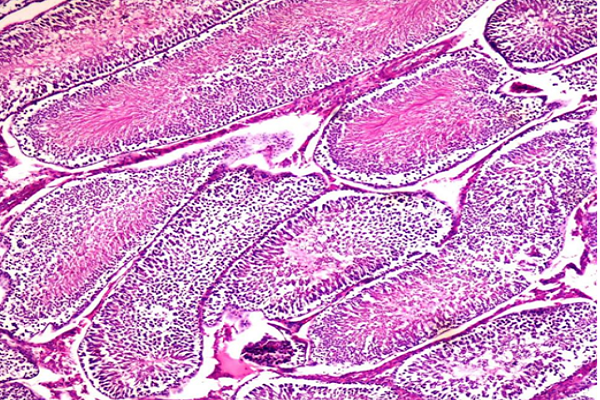Quercetin and Apigenin of Cymbopogon citratus mediate inhibition of HCT-116 and PC-3 cell cycle progression and ameliorate Doxorubicin-induced testicular dysfunction in male rats
DOI:
https://doi.org/10.15419/bmrat.v5i7.457Keywords:
Apigenin, ATP, Cymbopogon citratus, Doxorubicin, HCT-116, PC-3, Phosphatidylcholine, Phospholipids, QuercetinAbstract
Introduction: This study aims to elucidate the possible ameliorative effect of Cymbopogon citratus (CC), i.e. lemon grass, in a Doxorubicin (Dox)-induced male testicular damage and infertility model. Moreover, the anticancer role of the main active constituents of CC (Apigenin and Quercetin) was evaluated on prostatic and colon cancer (PC-3 and HCT-116 carcinoma cell lines, respectively).
Methods: In vitro studies of the cell lines were carried out to determine the IC50 of each active constituent of CC, in order to select the most suitable dose for in vivo studies. For the in vivo studies, 24 rats were divided into 4 groups: Group 1 received saline treatment (negative control), Group 2 received treatment with CC (300 mg/kg body weight (b.w.)), Group 3 received Dox treatment (25 mg/kg b.w. intraperitoneally (i.p.)) on day 9 of the study, and Group 4 received CC treatment followed by Dox treatment on day 9 of the study. All the treatments were administered orally for 10 consecutive days.
Results: The data revealed that Apigenin and Quercetin (AQ) had greater potency against PC-3 cells than HCT-116 cells. In vivo studies demonstrated that Dox treatment induced testicular damage and increased nitrosative stress, inflammation, and cell death, while decreasing cell energy markers for testes. In contrast, rats treated with CC only, or in parallel with Dox, showed ameliorative responses against Dox; they also showed greater testicular activity than normal, which reflected the ability of CC to significantly improve reproductive health performance.
Conclusion: In conclusion, CC inhibits the activity and growth of PC-3 and HCT-116 carcinoma cell lines and, moreover, the whole extract of CC ameliorates testicular dysfunction induced by Dox.

Downloads
Published
Issue
Section
License
Copyright The Author(s) 2017. This article is published with open access by BioMedPress. This article is distributed under the terms of the Creative Commons Attribution License (CC-BY 4.0) which permits any use, distribution, and reproduction in any medium, provided the original author(s) and the source are credited.
